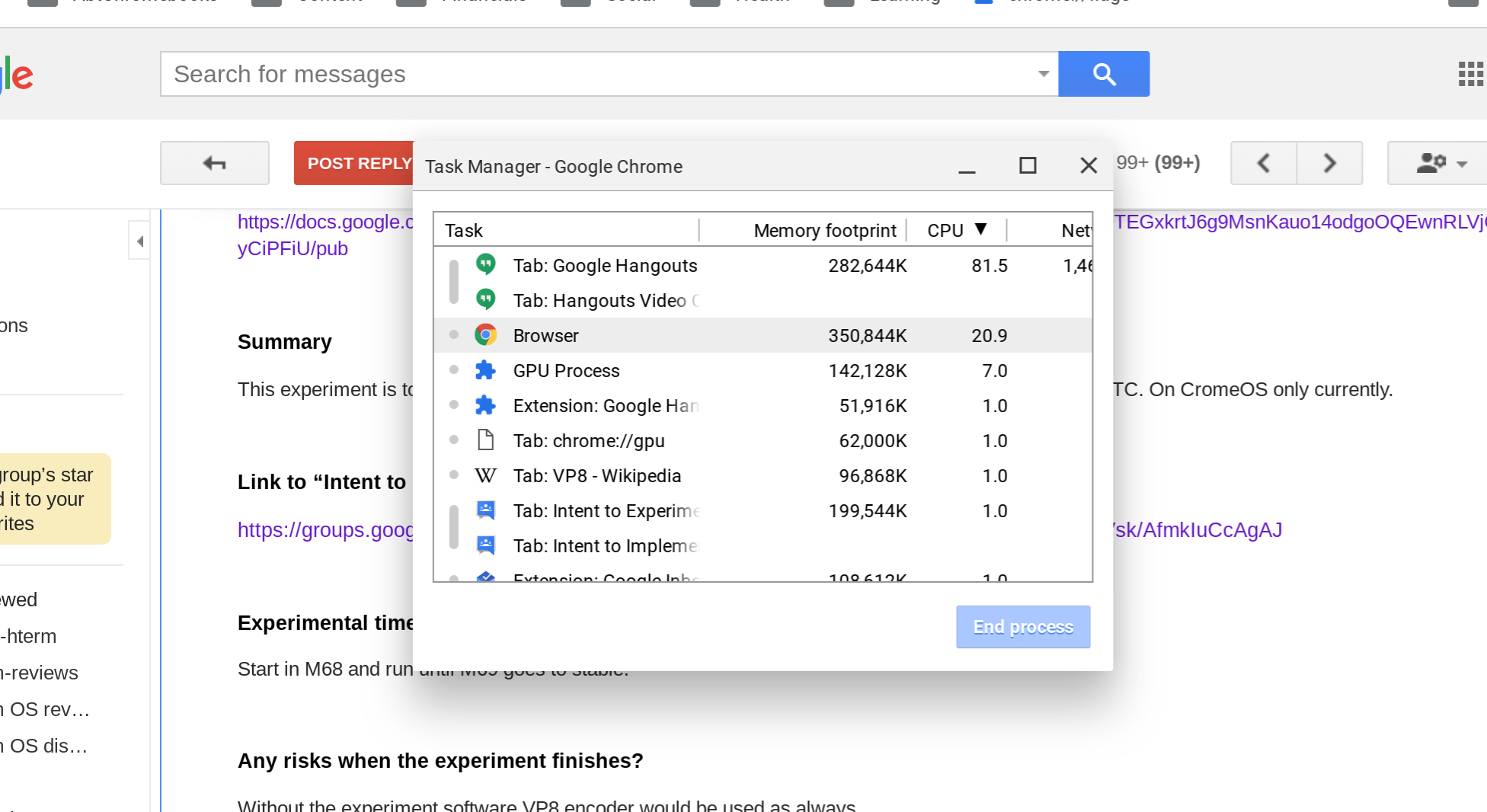Chromium team may bring VP8 hardware acceleration for Hangouts on Kaby Lake Chromebooks
Have you ever been in a Google Hangout video call on a Chromebook and watch the battery life quickly drop while the device gets really hot? That’s because your video output uses a software encoder for the VP8 codec used in Hangouts, according to the Chromium OS team, which can overly tax the processor.
The team hopes to address this by using hardware acceleration for VP8 encoding in Hangouts on new Chromebooks using Intel’s Kaby Lake chips. Or at the very least, they intend to test hardware acceleration to see if it helps reduce both CPU usage — which causes heat — and the use of a cooling fan on the CPU to draw off that heat. A positive result would be more battery life and less fan noise while in a video call.

This is just a formal intent to experiment internally with the Hangouts team, known as an origin trial. So it’s not likely we’ll see this feature available outside of Google, which would be a field trial. If the origin trial is positive, however, Google could, and likely would, expand testing beyond the Hangouts team.
When I worked at Google, I was remote four days a week, so I lived on Hangouts on my Chromebook to communicate with my team through video calls. And I remember my battery getting eaten alive by those calls, so I was often limited to working while plugged in, which defeated the purpose of having a laptop to a point.
Consumer users of Chromebooks don’t likely sit on Hangouts calls for hours each day, so this may not sound like a big deal to you. But in the business space, video calls can take up a large portion of the day, so hardware acceleration for Hangouts on newer devices would be a very welcome development.
